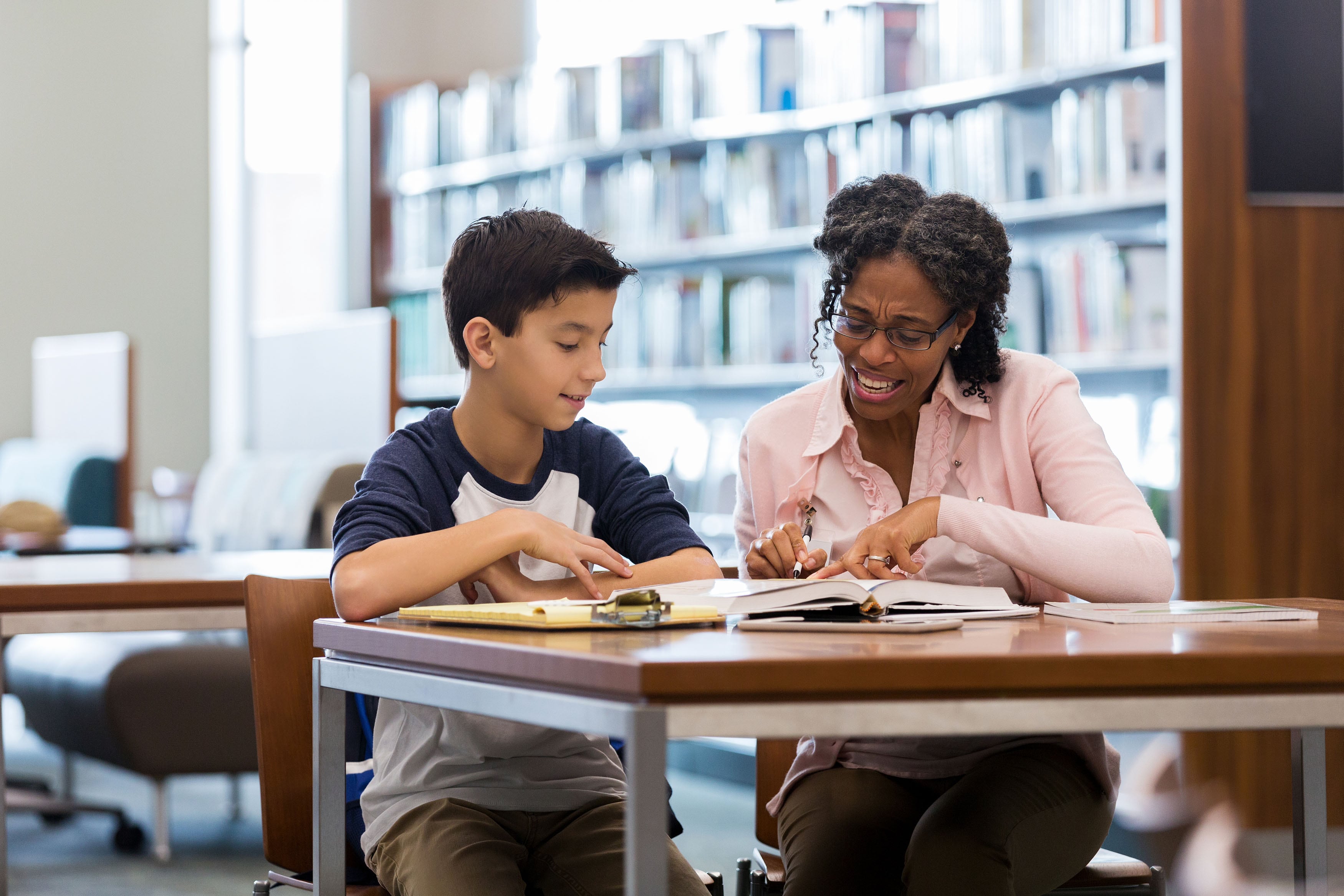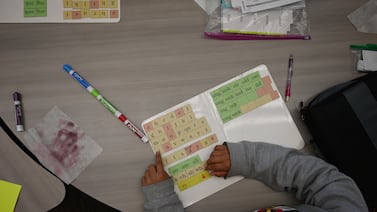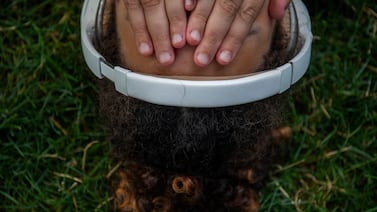Sign up for Chalkbeat Newark’s free newsletter to keep up with the city’s public school system.
Improving literacy doesn’t just happen inside the classroom. School librarians across New Jersey say they play an important role in fostering a love of reading and turning students into lifelong learners.
But their role in promoting and teaching literacy in schools is misunderstood and often not acknowledged, they say.
Librarians work with students and teachers in every grade and every subject, which allows them to follow students’ academic growth and develop relationships with them. They provide students with personalized book recommendations, help teachers collect resources for class projects, and teach students necessary research skills and digital literacy.
A recent report from the Center for American Progress found a link between school libraries and student achievement, including in reading. Decades of research shows that students with access to well-resourced school libraries with certified librarians consistently perform better. According to the report, these findings are still true when controlling for socioeconomic status.
“School libraries should always be considered essential in schools but especially when we’re trying to reverse the trend of low reading scores,” said report author Tania Otero Martinez.
Librarians said they see themselves as partners with classroom teachers in the effort to improve student literacy rates, with their work serving as a necessary complement to instructional strategies. NJ Spotlight News, in its ongoing multimedia Change Project series, recently focused on best practices for how to teach reading.
Beth Raff, president of the New Jersey Association of School Librarians, said school librarians should be included in discussions about literacy, curriculum and selecting materials for classroom libraries.
“There needs to be more awareness and a seat at the table more often,” she said.
Number of school librarians declining statewide
Many people don’t understand the role of school librarians, sometimes called school library media specialists, even within a school, Raff said. She said their wide-reaching role is a worthy investment for a school district to make.
Mary Moyer Stubbs, legislative consultant for the New Jersey Association of School Librarians, said while classroom teachers focus on building foundational reading skills, school library media specialists bring a level of enthusiasm that will help reading become a lifelong practice.
The Center for American Progress report found that while school libraries benefit all students, vulnerable students see the greatest gains from access to libraries. These students have historically passed statewide reading assessments at lower rates than their peers. Students from high-poverty and racially diverse areas are less likely to have access to libraries, according to the report.
New Jersey has seen a decline in the number of school librarians since 2010, according to a project from Antioch University Seattle called SLIDE: The School Librarian Investigation – Decline or Evolution? In the 2015-16 school year, the state had one school librarian for every 996 students. By 2021-22, there was one librarian for every 1,138 students. New Jersey is ranked 27th out of 50 for its ratio of students to librarians, according to SLIDE. The project also found more than two dozen districts without full-time librarians, especially in South Jersey and along the Jersey Shore.
School libraries fulfill a need
Tania Otero Martinez, K-12 education policy analyst at the Center for American Progress, said increasing the number of school libraries with certified librarians is essential for all students to develop a love of reading, especially those who might not have access to books at home and are unable to visit their local public library.
“The school library can be the first place they come into consistent contact with books, the first place they can develop their love of reading,” she said.
Tricina Strong-Beebe, a K-8 school library media specialist in Hainesport, said it’s critical for students to have free choice over what books they read. In her library, this means students also have a say in what books are added to the library’s collection.
Students who are struggling to read are given opportunities to read with older students about subjects they are interested in, she said. This might mean pairing a book the student can read confidently with a more advanced book on the same topic that includes visual elements.
Faith Brody, a school library media specialist in Oaklyn and Collingswood, said librarians are trained in finding books for anyone, even readers who are struggling or uninterested. This might involve asking the student if they want to read a story or a facts book. If they say facts, she might follow up with topic suggestions and point out different sections in the nonfiction area of the library.
Brody said in addition to teaching students reading skills, it’s important to get students engaged and interested in reading so they want to continue reading. “If you can combine the two then you can be really successful,” she said.
Teachers, librarians ‘instructional partners’
Brody spent five years teaching reading as a classroom teacher before becoming a librarian. She said it’s important for teachers and librarians to work together to support students, such as through collaborating on research projects by compiling materials and library books. Everyone in the district should understand each other’s roles, including teachers, librarians, and administrators, she said.
“I would love for more librarians to be recognized and seen as instructional partners. We’re not just standing behind a desk, checking things out. We’re really thinking and trying to find tools and resources that will help,” Brody said.
Evelyn Mamman, assistant superintendent of curriculum and instruction in the South Brunswick School District, said empowering librarians and promoting collaboration is central to her work. She said there is a librarian in every school in the district who is treated as an expert and instructional partner.
“I wanted to change the narrative that librarians are just there to check out books. All of this is intentional,” Mamman said.
Prioritizing librarians in school budgets
Librarians in the district work with students who are conducting research and co-teach lessons with teachers on information literacy, which is the ability to recognize what information is needed, find it, and use it effectively. Librarians also provide professional development and give input on curriculum, Mamman said.
“We will be doing our students a disservice if we do not have reading and librarians and informational literacy at the forefront. That shows based on the way we schedule, based on the way we collaborate, how we’re talking about books,” Mamman said.
She said the South Brunswick School District is facing significant budget cuts but is not considering cutting librarians because of how important they are to the district.
The New Jersey Association of School Librarians is fighting to prevent further cuts to school librarians and promote their importance. The association supports legislation that would require public schools with 300 to 1,499 students to have at least one full-time school library media specialist. Smaller schools would be required to have a part-time librarian.
The association is also calling for the administrative code related to school library media services to be rewritten to strengthen the requirement that library services are provided by a certified specialist.
“Being a reader is something you carry with you your whole life. It’s especially important that our elementary schools, and others, have access to a certified school library media specialist,” said Raff, the association’s president.
Hannah Gross covers education and child welfare for NJ Spotlight News via a partnership with Report for America. She covers the full spectrum of education and children’s services in New Jersey and looks especially through the lens of equity and opportunity. This story was first published on NJ Spotlight News, a content partner of Chalkbeat Newark.







